‘Tasees’ Foreign Minister Ammar Daldoum: ‘We are not a WhatsApp government, and our arrival in Port Sudan is only a matter of time’
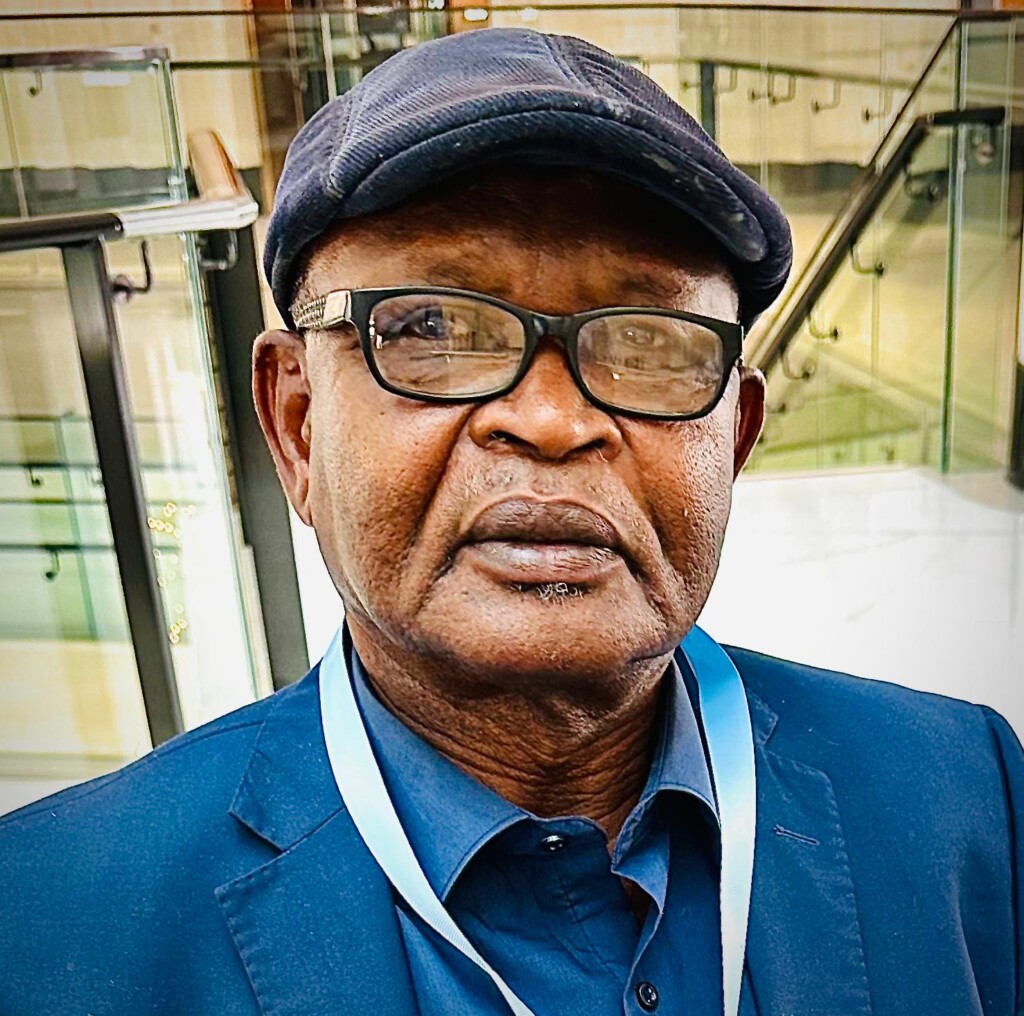
Secretary General of the Popular Movement of the North and Minister of Foreign Affairs in the Sudan Founding Alliance (Tasees) government, Ammar Daldoum (File photo: Radio Dabanga)
The core of the Sudan conflict is the centre vs marginal war, and the Port Sudan Authority is responsible for crimes that span 70 years, “beyond what the RSF or any other party in Sudan has committed,” says Ammar Daldoum, secretary-general of the Sudan People’s Liberation Movement-North under the leadership of Abdelaziz El Hilu (SPLM-N El Hilu) and Minister of Foreign Affairs in the Sudan Founding Alliance (Tasees) government, in a candid interview with Radio Dabanga on the programme ‘Plain Speaking’ broadcast on Saturday. “We seek to destroy and dismantle the centre, and to build a new centre, on new foundations, represented by voluntary unity, democracy, secularism, and equal citizenship…”
Since the coloniser’s exit in 1956, Sudan has not been established as a real state, and its independence was fake, as a foreign coloniser was replaced by another local Sudanese coloniser. We have an integrated negotiating position to end the war, establish a real peace, and we are ready at any time to sit at the negotiating table, but the rejecting party is the Port Sudan Authority. We support the statement and efforts of the Quartet countries, and their initiative, and seek to cooperate with them to achieve a just and sustainable peace, but do not currently have direct contacts with them.
Daldoum confirms that the Tasees Alliance seeks to destroy the centre and restructure it again on new foundations represented in voluntary unity, democracy, secularism, and equal citizenship in Sudan.
Daldoum denies that the Sudan Founding Alliance forming a government in Nyala headed by Hemedti sought to create a separate state in western Sudan. He says: “If we wanted to establish a separate state, we would have declared it in the constitution of the founding alliance that we signed and ratified, and we do not take permission from anyone.” He adds: “We seek the unity of Sudan … unity based on the free will of the Sudanese people.”
‘The essence of the conflict is the war of the centre against the margin…’
Daldoum says in the interview with Dabanga that Sudan has been living in a state of continuous war with itself since its independence in 1956 until today, pointing out that “the essence of the conflict is the war of the centre against the margin.”
He explains that Sudan “has been building a military arsenal for the past 70 years, not to confront external threats, but to fight its citizens,” explaining that “wars have affected South Sudan, Darfur, the Nuba Mountains and Blue Nile, and are still burning today.” He adds, “The centre has been fighting the Sudanese people relentlessly, sometimes using weapons in the name of religion, sometimes through fraudulent elections, or military coups.”
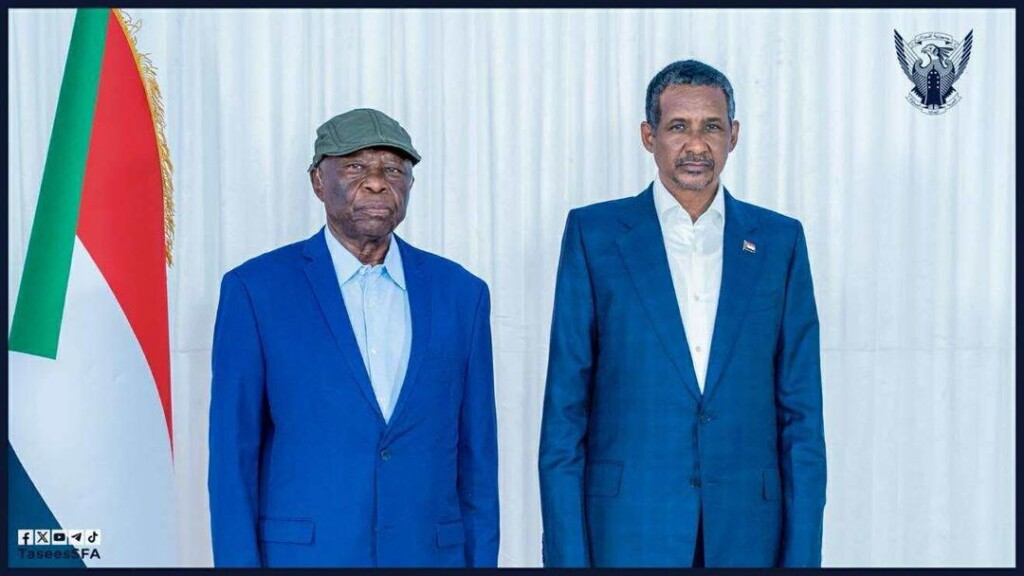
(File photo: Supplied)
Alliance with RSF and collective awareness
He points out that the “collective awareness” among the people of the marginalised is reinforced by the need to control natural resources and confront the racist and exclusionary policies practiced by the centre, stressing that the marginalised forces have realised with collective awareness that their previous wars were nothing but proxy wars in favour of the centre.
In response to a question about the feasibility of the SPLM’s alliance with the Rapid Support Forces (RSF), which are accused of committing war crimes and genocide in Sudan, Daldoum says, “We do not deny that the RSF has committed crimes, but we have also recognised in the 2025 Sudanese constitution – Article 48/1 – the need to achieve justice and historical accountability, and anyone who is proven to be involved in crimes will be held accountable, whoever he is.” He points out that the government of Port Sudan itself is responsible for crimes that extend for 70 years, (more than those committed by the RSF or any other party), recalling the trial of Ali Kushayb, one of the militia leaders, before the International Criminal Court as proof that no crime falls by statute of limitations.
‘Our enemy is the centre, not the RSF…’
Regarding the rumours that there is a crisis within the SPLM due to the alliance with the Rapid Support, Daldoum denies this, saying: “This is not true. The decision to join an alliance was made voluntarily by the political and leadership council of the movement last February, and no party forced us to do so.”
“We believe that our first and last enemy is the centre, not the Rapid Support,” he says. He explains that “the RSF and other movements used to fight on behalf of the centre, but what he describes as the shift in consciousness made the people of the margins unite against the centre’s policies.”
He adds:( “The centre was constantly working to ignite wars within the margins, even between the Arab tribes themselves, to keep the conflict away from it… Today, we have realised that the unity of the margins is the way to confront, destroy and restructure this centre on new foundations that recognise diversity and ensure a just and lasting peace.)
Daldoum stresses that the Tasees Alliance “seeks not only to confront the centre, but to rebuild it again in Sudan, to be based on the recognition and management of diversity fairly, ending decades of internal conflict and establishing sustainable peace.”
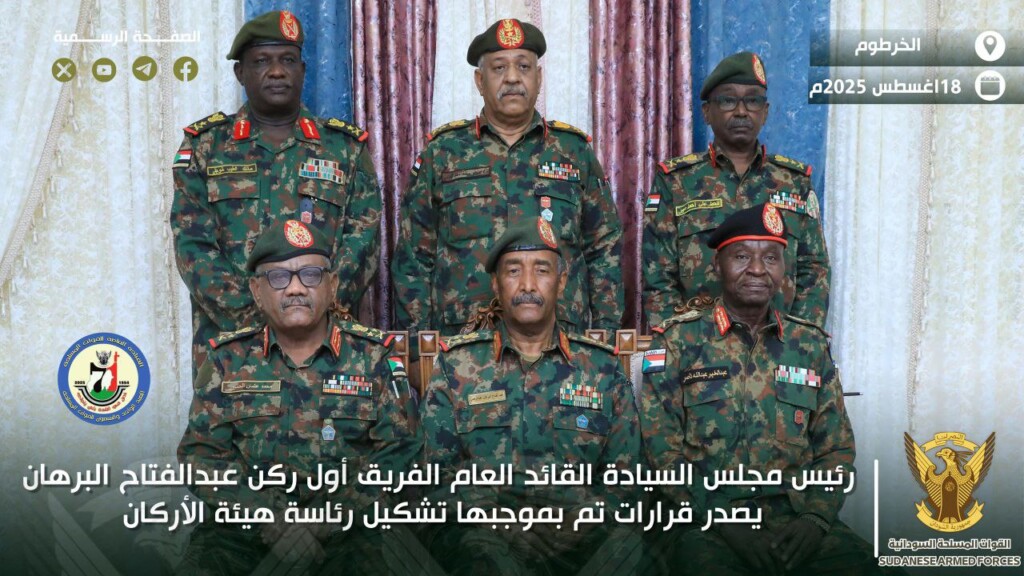
Sudan has not been established since independence
Daldoum says that Sudan has not been established as a real state since its decolonisation in 1956, and considers independence to be “fake”, (because what happened was nothing but the replacement of a foreign coloniser with another local Sudanese coloniser).
He stresses that the Government of Peace and National Unity (Tasees) does not seek to divide or fragment Sudan, but rather to restructure the state on new foundations that ensure a just and lasting peace.
‘The war broke out before independence and has continued to this day’
In the interview with Radio Dabanga, Daldoum explains that the Sudanese state “has never known a comprehensive national discourse, and that the war broke out months before the declaration of independence, and it continues to this day.” He adds: “Sudan is the only country in sub-Saharan Africa that has not enjoyed lasting peace, or political stability, for 70 years, and this is the biggest proof that independence was fake and unrealistic.” Daldoum points out that the establishment government places at the forefront of its priorities a just and sustainable peace, explaining that “any political settlement must address the historical roots of the conflict, such as: restructuring the centre on new foundations, recognising the historical and contemporary diversity of Sudan, consecrating voluntary unity rather than coercion, building a secular democratic state that guarantees the peaceful transfer of power, and ending the monopoly of power in the name of religion, or through military coups.”
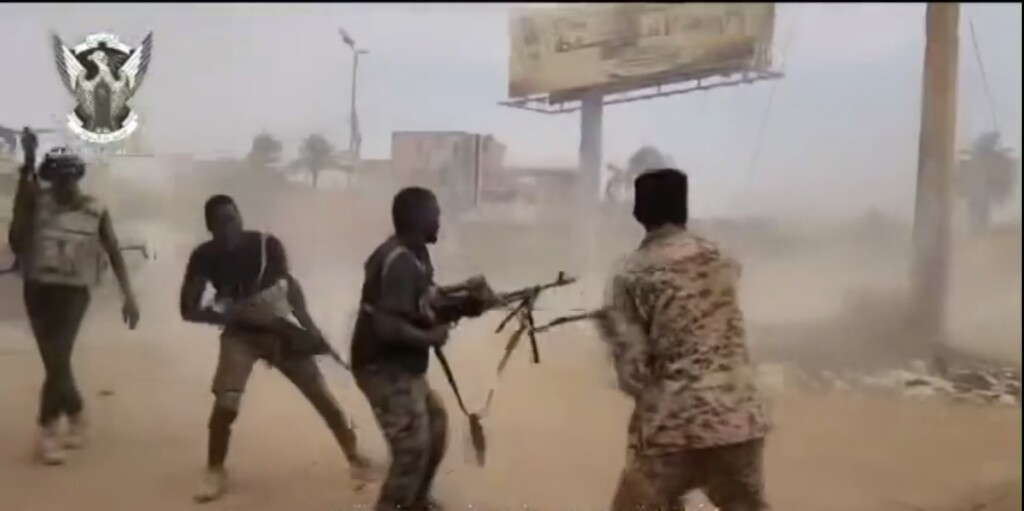
Why the war continues
On why the Founding Alliance continues to fight, besiege cities, and violations against civilians and displace them, Daldoum says, “We are not fighting the Sudanese citizens, but we are fighting the central government wherever it exists… The evidence for this is that the citizens of Darfur, the New Fung (Blue Nile), and the Nuba Mountains came out to welcome the peace government when it was announced, and it was a popular referendum.”
He adds that the responsibility for displacement, asylum and the humanitarian crisis lies with the Port Sudan authority, which he describes as managing and reproducing the war, as successive governments in the centre have done for 70 years.
The future vision of the establishment government
Daldoum put forward the vision of the establishment alliance, saying, “We do not seek to exclude anyone from ruling Sudan… We want a state based on equal citizenship, without religious, ethnic, or regional discrimination… It first recognises the diversity in Sudan, and seeks to manage it fairly, and then whoever wins free and fair elections, whether from the centre or the margins, governs Sudan.)
He stresses that their goal is “not to establish a state in western Sudan or to divide the country, but to establish a new unified Sudanese state based on democracy, secularism, and equality among all its citizens, and not to monopolise power in the name of religion or through military coups.”
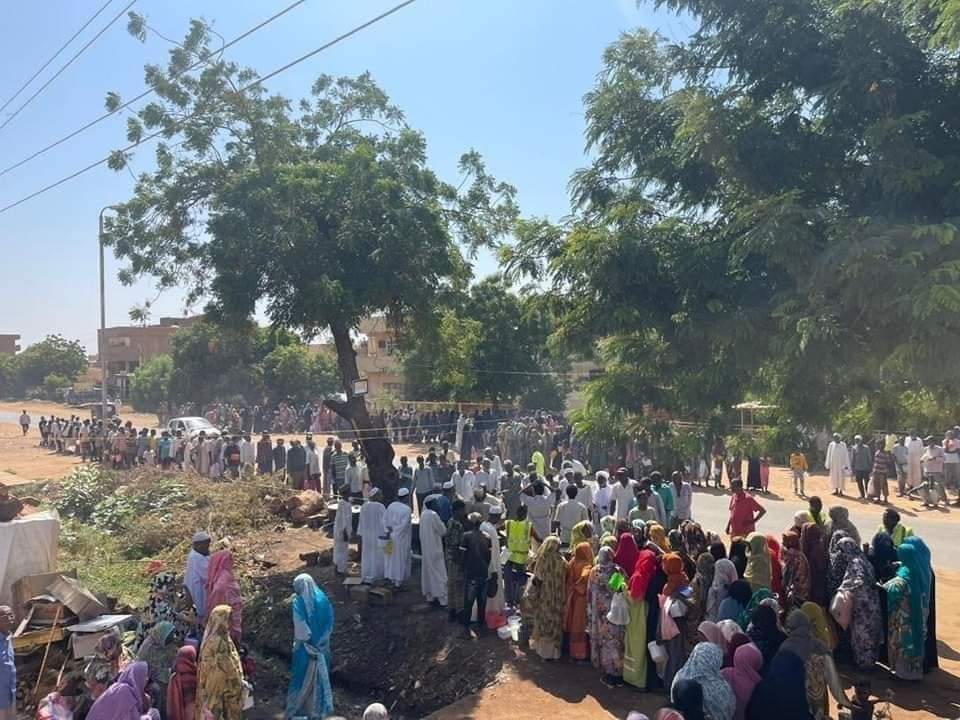
‘We will reach Port Sudan. It’s only a matter of time…’
Daldoum says that the Sudan Founding Alliance government is not a “WhatsApp government” as some describe it, but a real government for all of Sudan, with governors in various regions, including Khartoum and the eastern and northern regions.
His government’s arrival in Port Sudan was only a matter of time. He adds: “It is true that we have established a government, but it is not confined to Nyala or Kauda, but it is a government for the whole of Sudan…. We have governors in all the regions, and our government will reach as far as Port Sudan. It’s only a matter of time.”
Start of service delivery Regarding how to manage large areas in Kordofan, Darfur and Southern Blue Nile, Daldoum explains that a Tasees government has begun to provide basic services despite limited resources: “Today in Nyala, there are functioning hospitals, existing schools, an active police, and civil administration… People are convinced of this new state, because it represents them, and no one forced them to stay in it.) He stresses that the areas controlled by the Tasees alliance contain between 70 and 80 percent of Sudan’s resources and wealth, and says: “We as the people of the margins did not enjoy our resources in the past… Now that we have liberated these areas, we are putting our hands on our wealth and using it to provide services,” he continues, “Areas such as the Nuba Mountains and the New Fong – Blue Nile – have been under our administration for more than 40 years, and there are about 3 million citizens who did not leave them in search of services, because they found what they needed despite its simplicity.”
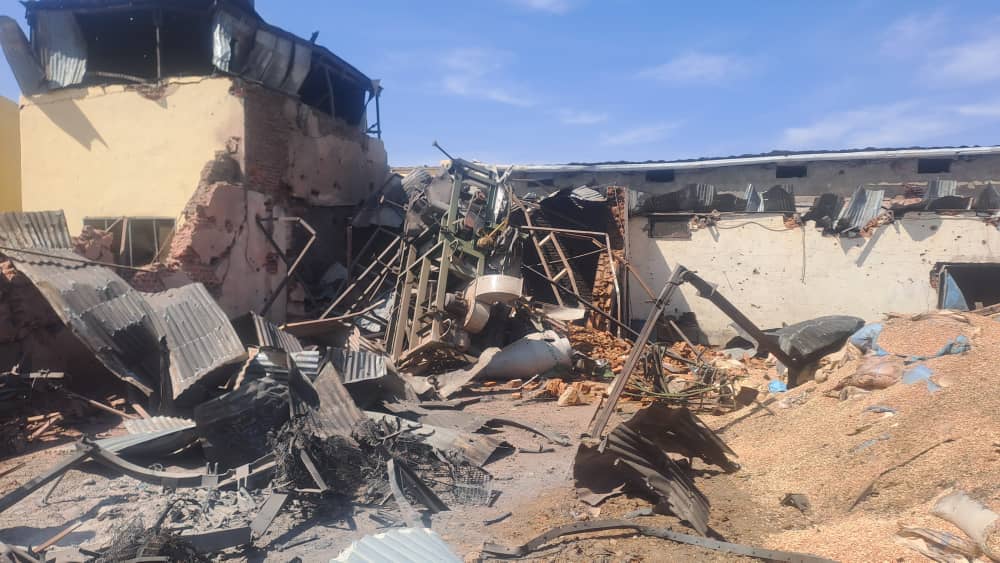
Popular legitimacy before international outreach
Daldoum explains that the file of external representation (ambassadors) and the approval of international recognition of the founding government is “a matter of time”, and says that a founding government in Nyala has already started visits and consultations with several countries, and has also received a welcome and reception in some capitals, but stresses that their first legitimacy is “popular legitimacy” These are derived from their presence in large areas of the country and the large mass marches that followed the announcement of the government, which he describes as a popular referendum.
He stresses that official recognition from international institutions such as the United Nations or the African Union is “a matter of time.”
A new image of Sudan
In the interview with Radio Dabanga, Daldoum states that the role of the Ministry of Foreign Affairs in the establishment of a government is part of a comprehensive plan aimed at presenting a new image of Sudan to the regional and international community:( a state active in regional peace, a partner in regional trade (Africa, COMESA, ECOWAS), and a member that seeks to raise what he describes as Sudan’s image as a state sponsor of terrorism or involved in human trafficking. He says that one of the tasks of diplomacy is also to benefit from cross-border organisations and to conclude trade and development partnerships.
State Institutions: Currency and Passports
Daldoum confirms that the establishment government will work to issue passports and a new currency (and if it is issued, it will be for all Sudanese) and adds. “We seek to fragment the centre, and if we issue a passport, for example, or a new currency, it will be the currency of Sudan against the currency currently in circulation.” With regard to the civil service and services, Daldoum says that the areas in which the government started to work are beginning to benefit from their resources: civil departments, police, schools and hospitals that work according to their capabilities, and states that the marginal areas that they announced to liberate contain a large percentage of Sudan’s resources (and part of these resources is used to provide services). He stresses that the local population voluntarily resides in these areas and receives basic services.
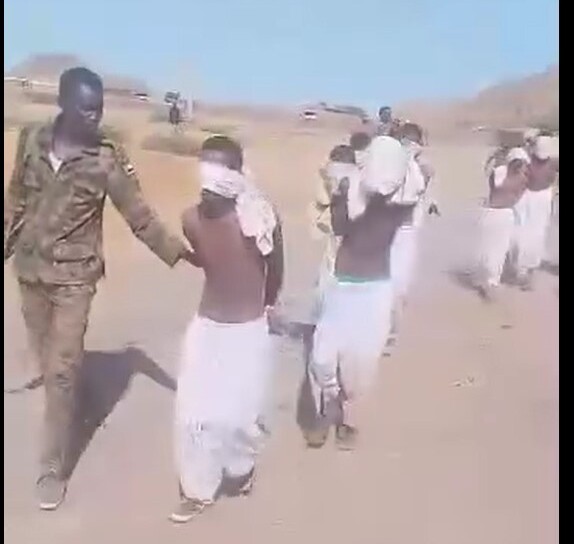
(Source: Social Media)
Violations and the principle of accountability
Daldoum acknowledges that the RSF committed violations in this war, but stresses that the speech of a founding government includes a charter that stipulates justice and accountability, and points out that the majority of criminal files and crimes committed over the past 70 years are primarily responsible for the centre that took power and provided the tools of repression, calling for a comprehensive investigation and accountability.
An integrated negotiating position
Regarding the peace process, Daldoum says that his government has an integrated negotiating position aimed at a just and sustainable peace that addresses the roots of the historical problem, and that any successful political settlement must restructure the centre, enshrine voluntary unity, and build a secular democratic state that guarantees the peaceful transfer of power and ends its monopoly in the name of religion or through military coups. He adds that his government believes that no party should be excluded, and that the founding document is open to all forces that believe in their vision, and that they have formed a committee to receive organisations and individuals wishing to join the unity and peace project.
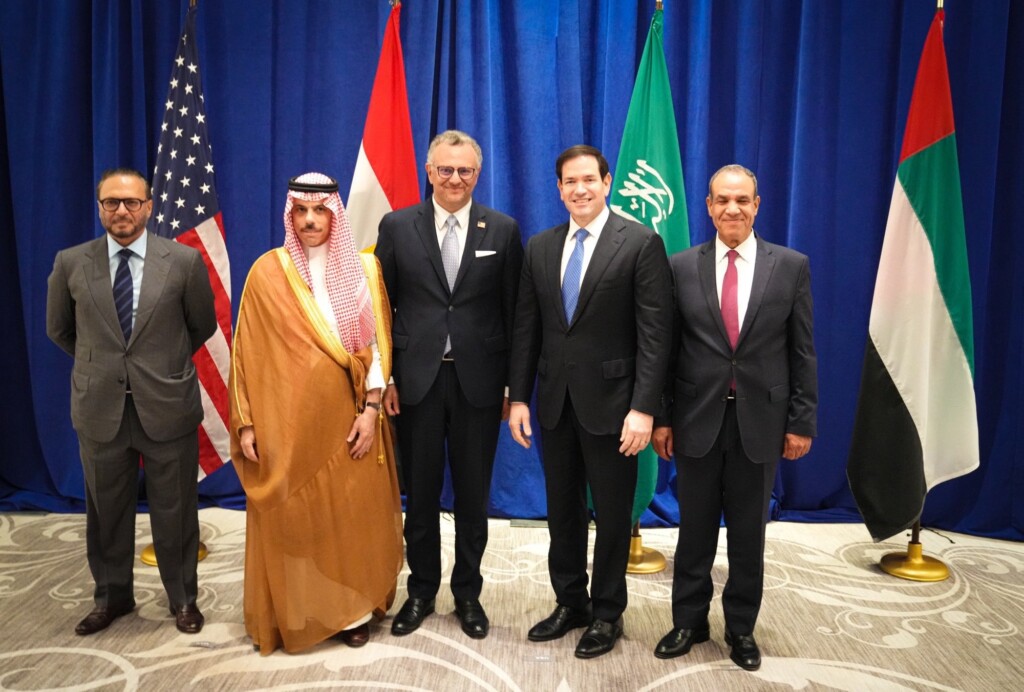
Support for the Quartet initiative
Regarding international initiatives, Daldoum expresses the support of the founding government for the Quartet‘s statement, which includes points related to the unity of Sudan, the delivery of aid and a humanitarian truce, noting that his government has begun to implement some of the items of the statement in practice, including the opening of humanitarian tracks, expressing his readiness to cooperate with the Quartet whenever they are asked to do so, despite the lack of direct contacts at the current moment. He also notes that the Ministry of Foreign Affairs, which he heads, is working on a comprehensive plan to present a new image of Sudan in international forums, and that international recognition of the establishment government is “a matter of time” and that his government possesses popular legitimacy.
He points out that “Tasees is not a WhatsApp government and is not limited to specific areas such as Nyala or Kauda, but represents the whole of Sudan, stressing that its arrival in the capital Port Sudan has become a matter of time.”
Extradition of Al Bashir, Abdulrahim, and Haroun to The Hague
Daldoum also dealt with the issue of international accountability, considering that the prosecution of perpetrators such as Ali Kushayb does not replace the accountability of the leaders who hired such perpetrators, demanding that the scope of accountability extend to those who were behind the policies of arrests and killings. He stresses that “crimes do not lapse by statute of limitations” and that anyone found involved will be held accountable in accordance with the requirements of the constitution and the messages of historical justice. He calls on the wanted presidents Omar al-Bashir, Abdel Rahim Mohamed Hussein, and Ahmed Haroun to hand them over to the International Criminal Court
Siege of cities in Darfur and Kordofan
In response to accusations that establishment forces are besieging cities in Kordofan and Darfur, Daldoum says that his government “is not fighting the citizens, but rather fighting the Port Sudan Authority and its militias wherever they are found,” stressing that “the presence of the army in El Fasher, Kadugli, El Obeid and Dilling is a strange object that attacks our people with drones and cannons, and we cannot remain idle.” He stresses that the military solution has historically failed and that the other side must adopt the logic of dialogue, otherwise war will remain the option of forcibly defending citizens and property.
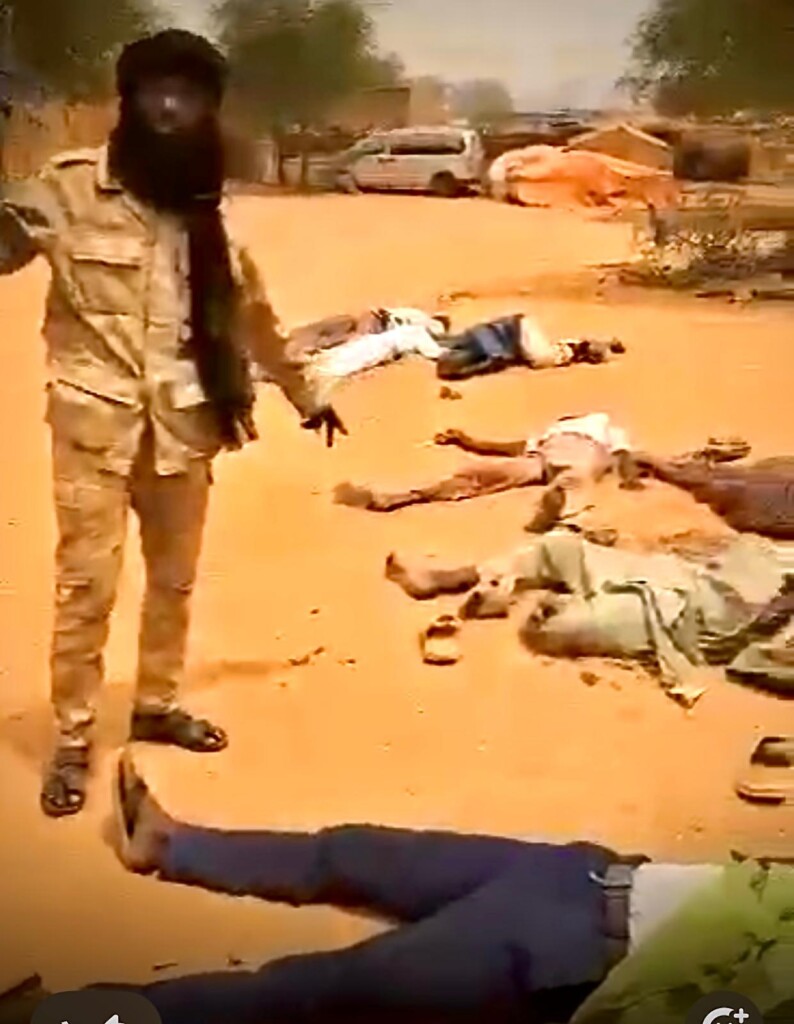
Violations in areas under the control of the Founding Alliance
Responding to accusations of violations against his government, the Foreign Minister says: “Reports that promote the existence of violations, torture and arrests in areas controlled by the peace government are “untrue” and calls on those wishing to verify to visit prisons and the concerned areas to see the reality. However, he stresses his government’s commitment to justice and accountability and reiterates his government’s readiness to hold national and international courts accountable if any abuses are proven.
Popular Army and War
On the participation of the Popular Army forces in the ongoing battles in El Fasher and Kordofan. In the interview with Dabanga, Daldoum says that “ the forces of the People’s Army, after the signing of the charter and declaration of the founding government, became an integral part of the forces of the government of peace and national unity, and that all the armies of the organisations that signed the charter of the founding alliance became an essential part of the forces of the founding government.”
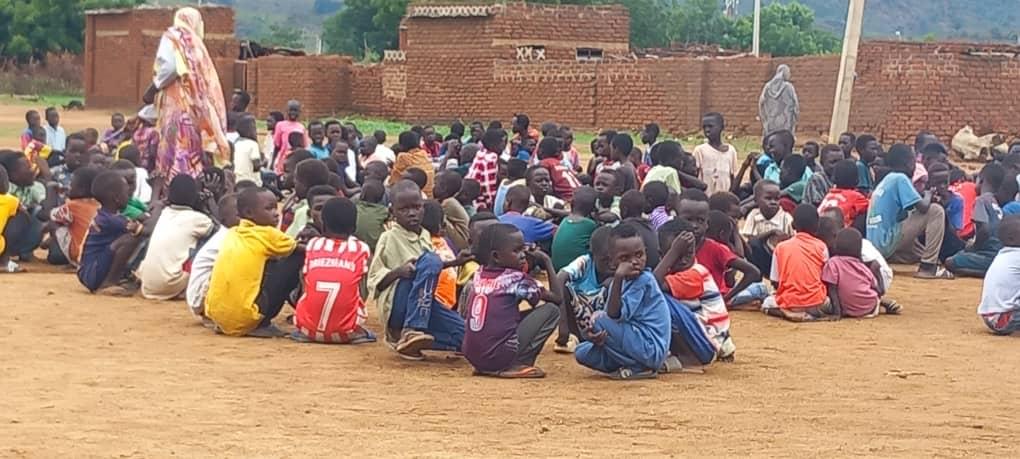
Arrival of 30k people per week fleeing Kadugli and Dilling
Daldoum links responsibility for displacement to the worsening humanitarian crisis to the centre’s policies, saying that the responsibility for the waves of displacement and asylum lies with the “Port Sudan Authority” , which manages and reproduces the war, and that the areas under the control of his government contain a large proportion of the country’s resources.
He points out that his government receives large numbers of displaced people every week, reaching between 20,000 and 30,000 people in Kauda and neighbouring provinces in the Nuba Mountains, and that the humanitarian situation in areas such as Kadugli and Dilling is difficult and dangerous, which has prompted thousands of families to flee in search of material and livelihood safety.








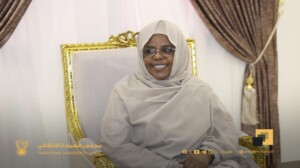


 and then
and then